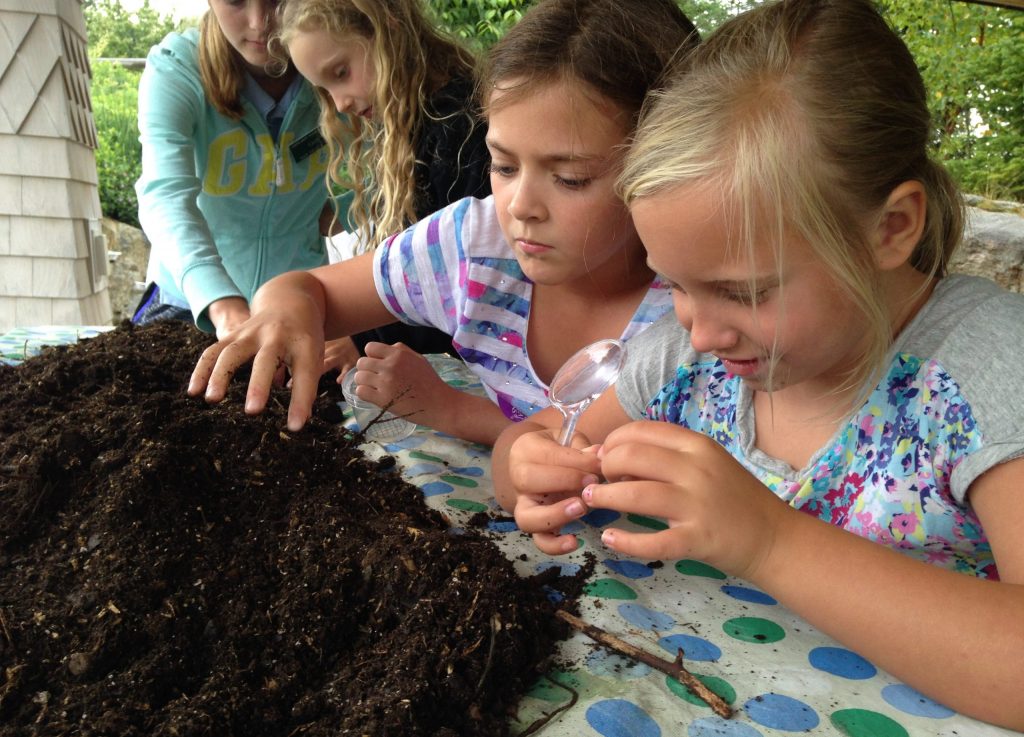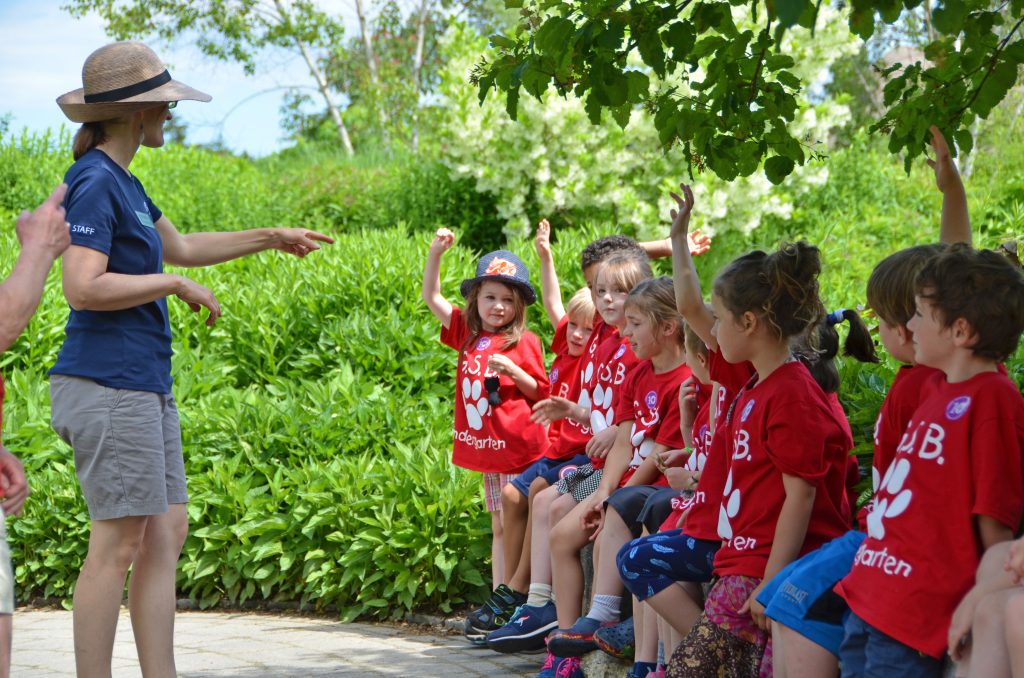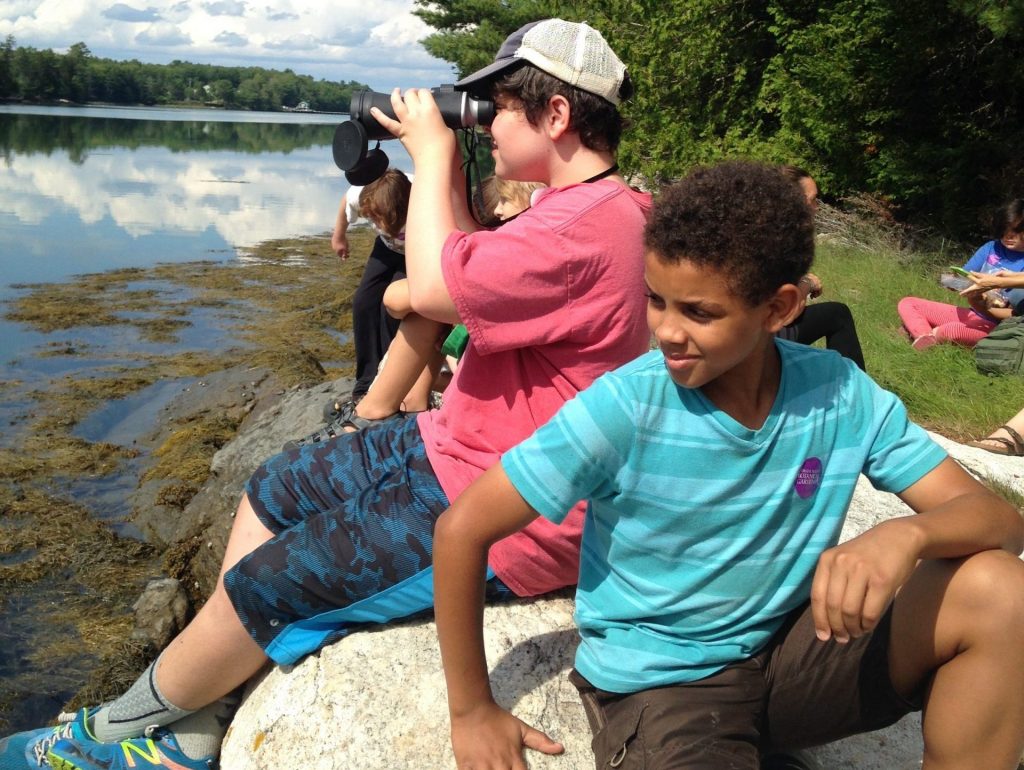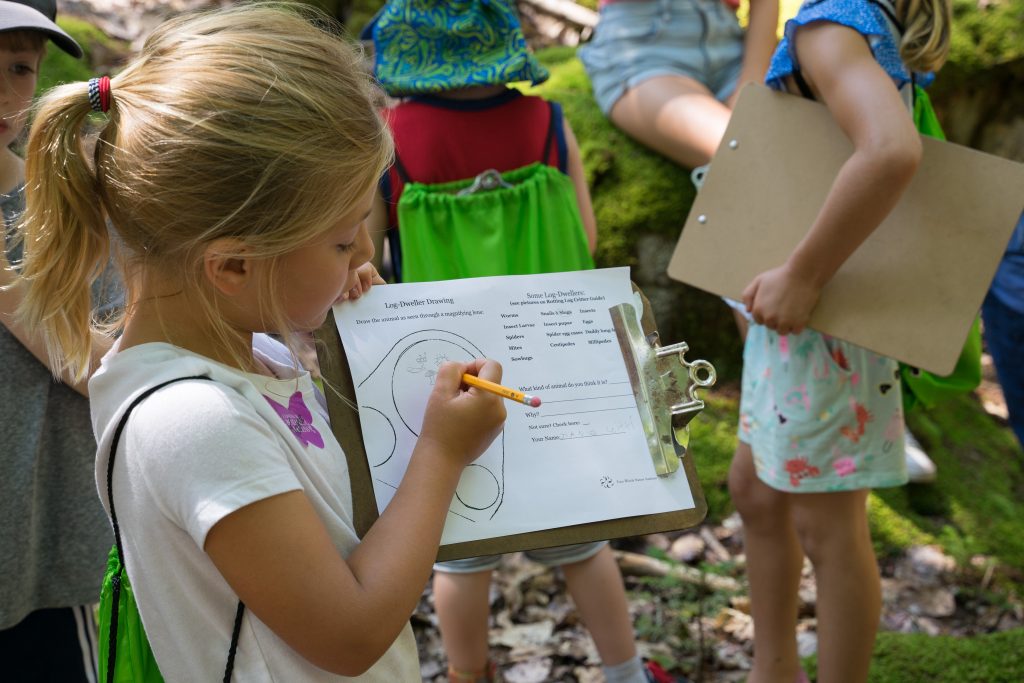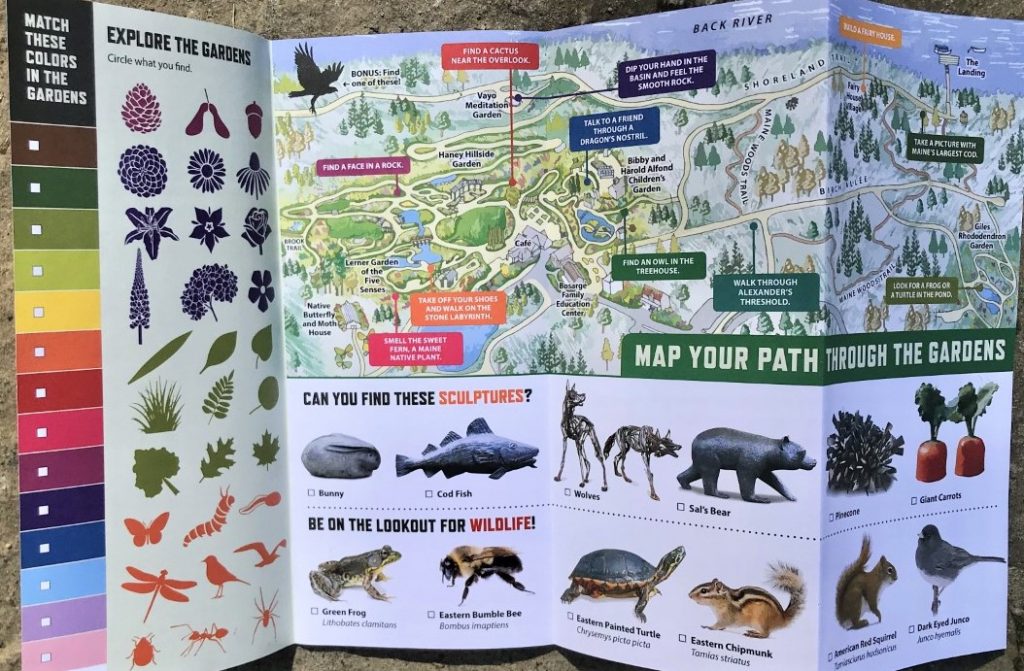Guided Nature Walks
These 60-90 minute walks are led by an experienced Gardens staff guide. These walks explore different areas of the Gardens and its surrounding woodlands, and dive into different relevant topics. The price for each program is $25.
Guided Nature Walk Topics
Wabanaki Studies at the Gardens (2nd-12th) – Deepen your students’ understanding of Wabanaki values and traditions on a special tour as we visit our Three Sisters Garden and new indigenous art exhibits. We will spend some time learning about the significance of the four “R’s” – Reciprocity, Relationship, Respect, and Responsibility – in relation to Wabanaki values. Participants will also learn about the traditional uses of some of our native plants.
Five Senses in the Garden (PreK-3rd) – Students will put all five senses to use as we explore the many features of the Lerner Garden of the Five Senses.
Bee Walk (K-12th) – Students will be introduced to the process of pollination, learn about native versus nonnative bees and how to garden for them, and understand the importance of these pollinators out in the natural world. Checking out the Gardens’ apiary with a staff beekeeper will help students become more comfortable with these amazing creatures.
Sense of Wonder Trail Walk (K-8th) – Students will explore the web of life in our forest ecosystem through the lens of author, marine biologist, conservationist, and seasonal Maine resident, Rachel Carson. Teachers who sign up for this program will receive a book about Rachel Carson to share with their class before the field trip. (NGSS)
Maine Woods Walk (3rd-12th) – Students will learn how to identify common Maine trees and be able to distinguish a conifer tree from a deciduous one. Students will also gain an understanding of the ecology and cultural history of our native trees. (NGSS)
Bird Walk (K-12th) – Students will learn how to identify birds by sight and sound and gain skills using binoculars for birding. Small binoculars can be provided, but students are welcome to use their own.
Apple Cider Pressing (PreK-6th) (fall only) – Students will learn about the botanical and cultural history of apples as they participate in making apple cider with an old-fashion press. (An extra $12 charge per class for apple cider pressing supplies will be applied.)
